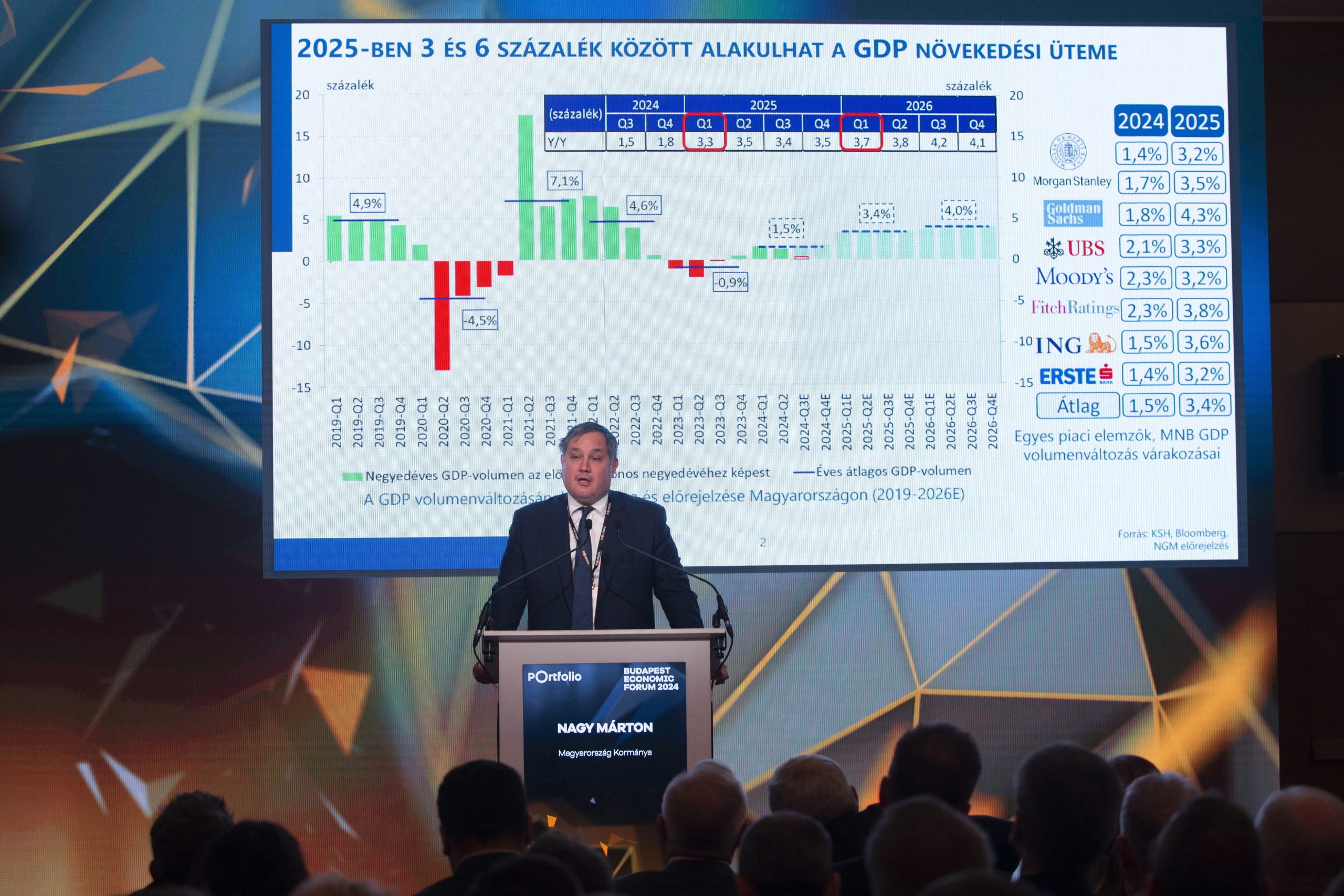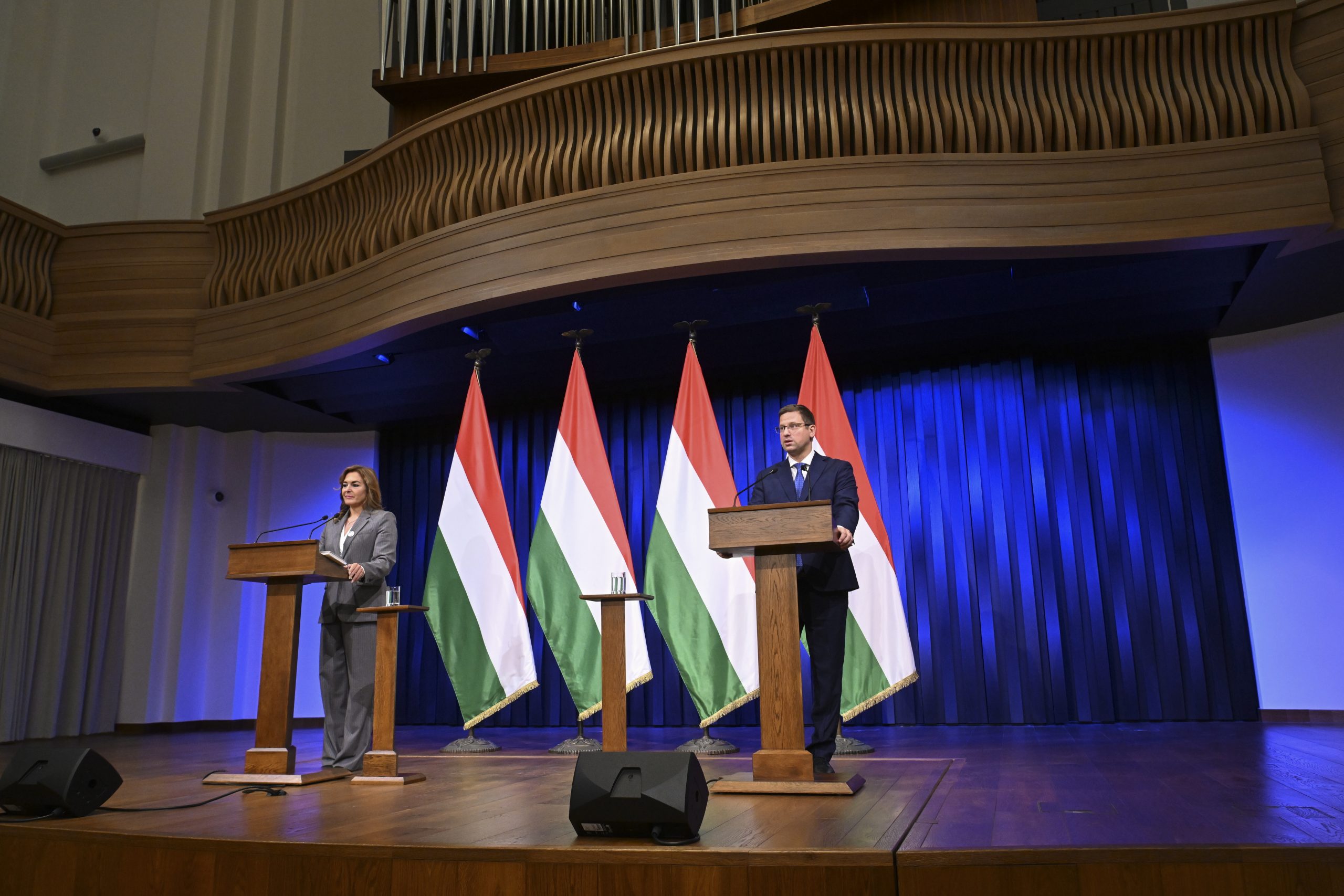
A substantial increase in economic output is projected for the third quarter of 2025.Continue reading

The Cabinet met on Wednesday morning to discuss the 2025 budget plan, and at an unusual time that day convened a press briefing during a break in the meeting. This year as a whole, including the latest quarterly growth data, shows that a new economic policy is clearly needed, Gergely Gulyás, Minister responsible for the Prime Minister’s Office, told the press briefing.
“The 2025 budget is the budget of the new economic policy, which includes the 21 points of the previously announced economic action plan,” Gulyás Gergely began the press conference. He said that discussions on the details of the economic action plan are ongoing and that the most important issues will be open for public consultation. He added that in the final vote on next year’s budget that will take place in the second half of December, those points will be adopted which enjoy the support of the majority of the citizens.
The start of the new economic policy will therefore be the entry into force of the new budget, on January 1, 2025,”
he said.
He stressed that the New Economic Policy Action Plan will bring about a turnaround in Hungary, and that the objective of economic growth of between three to six percent in Hungary in 2025 and 2026, will remain. The Minister noted that the 2025 budget is projected to grow by 3.4 percent “according to conservative calculations.” He said that the BMW plant and the BYD plant will start operating in Hungary next year, which in itself will generate a demonstrable economic growth.
Gulyás emphasized that this year as a whole, including the latest quarterly growth figures, showed that a new economic policy was needed, adding that
the policy of economic neutrality would remove and weaken the dependencies that currently affect Hungarian growth.
He described “the best piece of economic policy news” this year, that real wage growth is in the range of 9-10 percent, as an element to be kept.
Government spokesperson Eszter Vitályos said the government was not happy that “the European People’s Party is taking a stand against the interests of Hungarian farmers,” but “we find it particularly unacceptable” that a Hungarian party, specifically the Tisza Party, is also doing so. Asked about the role of Tisza Party President Péter Magyar in Brussels, she said that after the debate in the European Parliament, there should be no question that Brussels wants to openly interfere in Hungarian domestic politics and “has its backers.”
In response to a question, Gulyás said that the European People’s Party (EPP) must respond to the corruption allegations in the press. “We are curious to see whether these allegations are based on fact, whether it is true that the EPP does not simply allow corruption within its ranks, but also in the European Parliament and with European money,” or whether they can credibly refute this, he said.
On Olivér Várhelyi’s chances as a candidate for commissioner, he said there were three candidates out of the 26 who did not raise any conflict of interest issues, problems, or concerns. He pointed out that there has never been any question that almost no one knows and understands the EU institution and EU law better than Várhelyi. He added that
perhaps there is a degree of “unscrupulousness and infringement” that even the European Parliament does not want to cross, and therefore, in his opinion, the chances of the Hungarian Commissioner are not bad.
The Minister was also asked about U.S. Ambassador David Pressman’s statement on Hungary’s recently announced economic and neutrality policy. To the ambassador’s concern that the growing dependence on Moscow and Beijing could also affect the security policy of the United States and the Euro-Atlantic alliance, Gulyás said he would recommend him to study the massively growing U.S.-China foreign trade.
Via MTI, Featured image: MTI/Koszticsák Szilárd